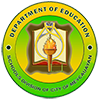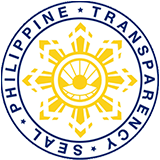Education is one of the most important and powerful things in this world. For many years of being a learner, knowledge, and skills lead us to become better people and create a better society to live in. Education systems change and develop at the same time we adopt new learnings in our society. Education is the key to change. It is an important tool that allows a person to understand his or her rights and responsibilities to his or her family, society, and nation. It improves a person’s ability to view the world and to fight against misdoings such as injustice, corruption, and violence, among other things (Team Leverage Edu, December 8, 2021).
On the other hand, we must always remember the importance of diversity and cultural awareness that must be learned not only in our homes but also in schools. The Habitat for Humanity of Broward says that “people must be open-minded and able to listen and accept other people’s views regardless of the fact of how different we are”.
The Drexel University School of Education expresses the importance to encourage diversity in schools and workplaces by “fostering inclusion and awareness around multicultural education and taking a culturally responsive approach to teaching benefits all students.” Stimulating students to accept uniqueness can prepare them to thrive in our diverse world.
Our country also considers these facts that can contribute to and affect our future. According to Saddam Mangondato Solaiman, Education Journal of the Department of Social Studies (January 2017), the importance of Madrasah Education for Filipino Muslims and the problems of mainstreaming it into the larger national system of education was first noted during the Martial Law years. Perhaps, the Moro rebellion in the early 1970s might have forced the government to pay attention to the importance of Madrasah Education. The study focused on the implementation of Arabic Language and Islamic Values Education (ALIVE) and the prevailing conditions regarding the teaching of ALIVE in Marawi City, Philippines, and how to take action and solve the difficulties encountered.
Based on the DepEd Order No. 41, s. 2017, pursuant to the 1987 Philippine Constitution and Republic Act No. 10533, otherwise known as the Enhanced Basic Education Act of 2013, the following are the aims of Madrasah Education in the K to 12 Basic Education Program: to provide Muslim learners with appropriate and relevant educational opportunities while recognizing their cultural context and unique purposes for participating in the program offerings and integrate content and competencies which are relevant and interest to Muslim learners. In addition to this, the book UP CIDS Discussion Paper 2019-10, written by Arlyn C. Marasigan, stated that “leaning towards the advancement of modernism in education, many have seen the advantages of the new education system. Madrasah education has a unique curriculum of its own in that Muslim students need extra time to learn too many subjects. There is still so much blood to be spilled to see whether this “too good to be true” curriculum mirrors the expected result that everybody is aiming for, most especially the Muslim learners” (pp. 7). From this, it can be mirrored that the goals of the Department of Education are wider than a piece of paper. We should always aim for the quality improvement of the education system while remembering to treasure our own origin.
As we open our minds to everything, there is always knowledge that becomes learning. The learning that we gain from our experiences can contribute to who and what we can be. As Madrasah Education is implemented, it shows that equality must always start in education. It gives everyone the same opportunities, which can be the product of unity. It also shows that we can adapt to new things, but we must never forget where we started. Treasuring the Muslim culture shows us not to see the differences in others but to appreciate the origin of everyone. Madrasah Education reminds us that our culture must be passed down from generation to generation. At the end of the day, it is based on us how we accept and respect each other as human beings.
Angie D. Sudario
Administrative Aide VI


